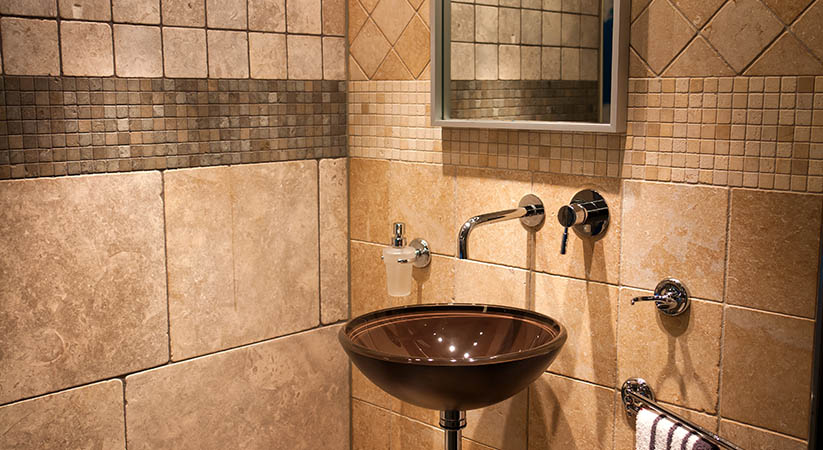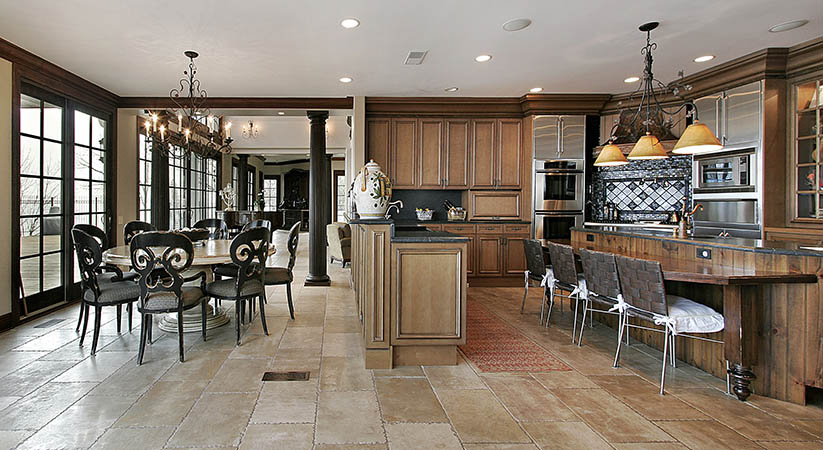Tap water is synonymous with hard water in the US as around 85% of the population receive hard water in their taps. Hard water is high in minerals like calcium and magnesium and due to this reason, your taps and showers have white or gray deposits. If it’s leaving minerals buildup on fixtures, is it also harming your skin or hair when you shower with hard water? And should you get a water softener installation for your house?
Effects Of Hard Water On Your Skin
Hard water has minerals and these are beneficial for your health if taken in a moderate amount. Therefore, some people use hard water for drinking and cooking. But the impact of hard water on your skin and hair is unpleasant and damaging.
The first disadvantage you’ll notice when bathing with hard water is the reduced lather of your soap. Because of this, soap won’t be cleaned properly from your skin and a layer of soap scum may remain on your body. Your skin has pores that release a natural oil, sebum, to moisturize your skin. When soap scum clogs your pores, sebum can’t be released, and in turn, your skin becomes dry.
Due to dryness, your skin is prone to cracks and wrinkles. Plus, razor burns and bumps during shaving are more common when you’re using hard water.
Moreover, clogged pores trigger acne or your face and skin problems like dermatitis, eczema, and psoriasis. The skin irritation is noticeable for people with these skin conditions as the rashes or itching may become more severe. People with sensitive skin may experience irritation even when they wear clothes washed in hard water.
If you shower in a different location, you find a clear difference. The shower may feel much better and your skin may feel smoother if the water there is soft, but irritating in case of hard water.
Effects Of Hard Water On Your Hair
Hard water increases dandruff in people who are already annoyed by it. As hard water is rich in minerals, they get stuck on your scalp more easily due to the presence of hair resulting in dandruff. People with dandruff use special shampoos and conditioners to reduce dandruff. But the impact of these haircare products diminishes if you wash your hair with hard water.
The presence of minerals leads to less lathering of your shampoos and conditioners. You have to use more of them and still suffer from dryness and dandruff on your scalp. It can also cause hair breakage.
Furthermore, hard water fades new hair color more quickly than soft water. Plus, it flattens perms more quickly as well. On the other hand, soft water balances the pH level of your hair and makes it smoother in comparison to washing hair with hard water.
Do You Need To Soften Water?
If you travel elsewhere and feel your body is cleaner after a shower, you should consider a water softener system to remove minerals from your tap water.
For people with skin problems and sensitive skin, if you feel irritation after a shower, try bathing with soft water and if the irritation reduces, install a water softener for the whole house or a tap and shower filter.
A whole-house water softener is a complete solution but it’s coming with a cost and if you’re renting, it’s not an option. Then, go for portable water softeners and faucets and shower head filters.
When getting portable water filters, make sure that they fit your specific fixture otherwise, it’ll be a waste of money.
How To Know Your Tap Water Is Hard?
There is no simple method for finding out precisely if you’re receiving hard water through your tap. The most common clues are mineral buildup on your faucets and fixtures, and less leathering of soap. You can also search your zip code to know. However, if you want to be 100% sure, get hard water testing strips.
Conclusion
Some people wouldn’t even notice hard or soft water and bath in any of the types of water easily. But for some others, hard water causes skin and hair problems. If hard water is elevating your skin problems, it’s time to invest in a portable or whole-house water softener system Erie.



